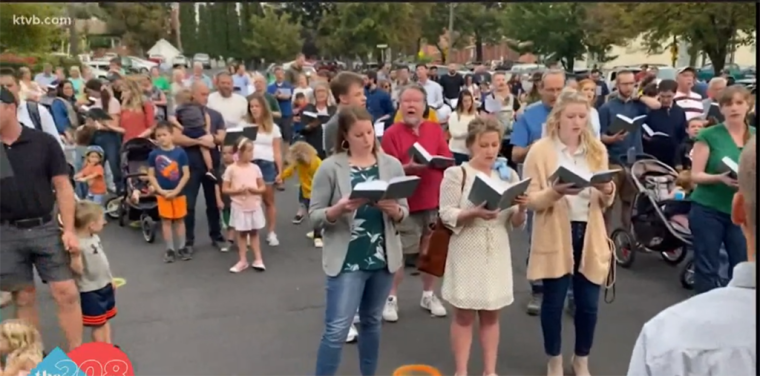
The lawsuit was filed by Gabriel Rench and Sean and Rachel Bohnet against the city of Moscow, Idaho, and several of its employees in response to a gathering that took place at City Hall in September 2020.
The Idaho Counties Risk Management Program, the city’s liability insurance provider, determined that a financial settlement was the best way to resolve the suit and avoid lengthy litigation.
Under the terms of the agreement, the ICRMP will pay $300,000, and all claims against the city and the employees named in the lawsuit will be dismissed, along with a release of all liability, as stated in a July 14 press release by the city of Moscow.
Rench was awarded the settlement for violations of their constitutional rights. The settlement was signed by the city's supervisor Gary Riedner, city attorneys Mia Bautista and Elizabeth Warner, Moscow Chief of Police James Fry, and city employees Will Krasselt, Megan Vincello, and Jake Lee, according to a statement by Rench.
Rench, who came to Moscow in 2002 to attend the University of Idaho, voiced his relief at the resolution while expressing concern over the cost to city taxpayers. “I am glad this shameful saga is over, but unfortunately at a high cost to the city taxpayers. I estimate that the city spent about $500,000 of city resources on this fight, including the mediated settlement,” he said.
Rench further accused the city of Moscow and a “liberal cult” of consistent religious discrimination against his church and members of the Christian community. He criticized the city’s response to the ongoing issue of Stickergate, an incident involving high school students protesting his arrest by posting free speech stickers on city poles. He claimed these students were singled out and charged with misdemeanors while others committing similar actions went unpunished.
The settlement follows the arrests that occurred at a “Psalm sing” protest in the City Hall parking lot on Sept. 23, 2020. The protest, organized by Christ Church where Rench was a deacon, attracted nationwide attention, even reaching the Twitter feed of then-President Trump.
While some supported the Moscow Police Department’s decision to arrest the peaceful protestors, others criticized Christ Church for what they saw as unlawful and unsafe behavior. The church has since proven that its “Psalm sing” was constitutionally protected “expressive and associative conduct,” and officers lacked grounds even to ask for participants’ IDs, let alone make arrests.
Judge England had earlier ordered a settlement conference, emphasizing that the plaintiffs were wrongfully arrested and the city had misinterpreted its own code. The judge observed that the city had given incorrect advice to its officers about the application of the code, and the plaintiffs were reasonable in their damage requests. – The Christian Poꜱt (www.christianpost.com).